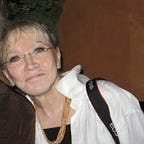I’m Not Deaf
The White House has scored a major breakthrough and a coup for those with any disability related to deafness or for the hard-of-hearing individuals who have always been challenged in career aspirations. Leah Katz-Hernandez is a White Receptionist and she is deaf as are both her parents.
True, schools like Gallaudet College in Washington, DC have been educating students with hearing impairment since 1864 and there has always been the Volta Review that has been around for 113 years, but traditionally the deaf have been directed to a few specific skill areas. Gallaudet never saw any need for this discriminatory trend, but business adhered to it and men became printers, women went into key punching or similar activities which didn’t require much verbal interaction, if any with supervisors or managers, or the use of a phone.
Deaf children were sent away to special schools for the deaf where they were trained in specific, deaf-centric work. Many of the schools were boarding schools, but one major school, not a boarding school, still remains as vibrant as ever — The Lexington School for the Deaf in New York City. Careers are encouraged in all areas.
Do you know that one of the most brilliant scientists, Dr. Donald L. Ballantyne, was instrumental in breakthroughs in microsurgery? To him we owe the growth of transplantation of fingers and limbs and yet he was not admitted to medical school because he was deaf. I know this because he told me when I met him after I had made a presentation on deafness and mental health services. He is not alone in such monumental accomplishments.
Few knew that deafness has played a major role in some areas of our culture and individuals with hearing impairment have been in the forefront. One instance, of course, was that of Alexander Graham Bell, inventor of the telephone. Did you know that both his mother and his wife were deaf or that he was originally a teacher of the deaf? He was also involved in the development of a form of communication known as manual finger language with which he could communicate with his mother.
The hand signals used in baseball may have been originally used by hearing-impaired baseball teams but there’s still some disagreement about this.
Despite the gains made in advocacy for those with any impairments, there are other disagreements even within the deaf community. The current discussion centers around the culture of the deaf and whether or not surgical cochlear implants may be destroying the culture as it has existed. Some in the deaf community, in my experience, have even advocated for only using speech and refusing to allow children to learn sign language. Others weigh in on the other side of the spectrum in terms of sign language over voicing.
You will hear that there are two cultures at odds here; the “hearing world” and the deaf. Begin a discussion with anyone with a hearing impairment and you may be in for an education in an area you never assumed existed.
I did experience a form of discrimination as a hearing person and it was quite unexpected. A friend asked me to meet her parents and friends at a social club. I went, knowing that it was a club for the deaf, but I didn’t expect to have people turn their backs on me when they found I didn’t sign. There was no attempt to communicate with me and suddenly I understood what they had experienced in the hearing world. I was the disabled person here.
The experience wasn’t a singular one. At a meeting for mental health professionals, who had some interaction with deaf patients, I had a speaker (who was a deaf professional) begin to ignore me in a conversation which included me. This was right after she had made an impassioned presentation on discrimination and here she was discriminating. She didn’t seem to notice it.
Perhaps the chasm which has existed between the hearing world and the deaf is beginning to close up. But it will only truly happen when everyone sees their own discrimination toward others who are different.
http://www.drfarrell.net
